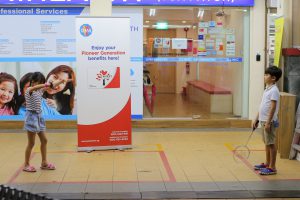Why some children from poor families do well—an in-depth analysis of positive deviance cases in Singapore
October 4, 2021

Children’s Day is celebrated in Singapore on 8 October, 2021. While is not an official public holiday in Singapore, students in primary schools and kindergartens may receive presents from their teachers or their school.
Children are often overlooked in their ability to manage adverse circumstances. Despite their youth, some scholars have argued that children who are active in shaping the world around them often find academic success. Nonetheless, this phenomena has not been closely examined from children’s perspective. Social worker Chelsea Cheang and Associate Professor Esther Goh (NUS Department of Social Work) contribute to this extant literature in ‘Why some children from poor families do well—an in-depth analysis of positive deviance cases in Singapore’ (International Journal of Qualitative Studies on Health and Well-being, 2018).
The authors examine children’s agency in relation to familial relations. They argue that closer interactions with family members cause children to be more aware of their family’s circumstances, and develop stronger motivation for performing well. For instance, the authors note that children with stronger family bonds are more likely to devise creative methods to mitigate stresses and financial constraints of their families. One student on financial aid creatively accrued cash to support his family’s low income. Instead of using a government-sponsored cash card for his own school meals, he would ‘cash out’ the virtual currency by purchasing items from friends who would then return payment in cash. Then he would pass on the cash to his mother for groceries. Innovations like these illustrate these children’s resilience and agency.
By illustrating children’s agencies through a plethora of examples, the authors call for social workers to rethink the support provided to children from poor families. Enhanced support could be provided to develop children’s strengths and closer familial relations. The strong family bonds may build up children’s confidence to manage the world around them.
Read the full article here.
